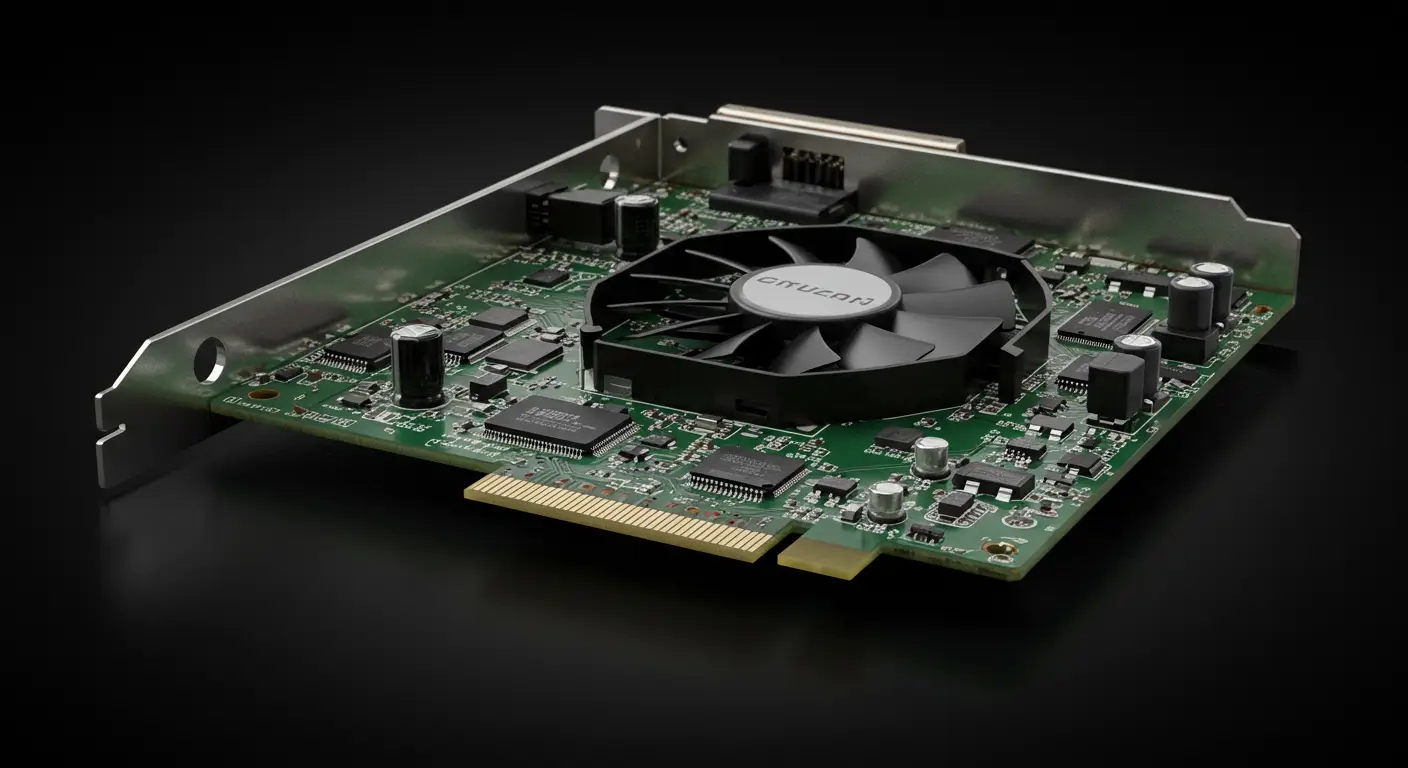While many functions that once required dedicated hardware are now integrated directly into motherboards or processors, expansion cards remain a crucial part of modern system design. From powerful graphics acceleration to ultra-fast storage and reliable networking, expansion cards continue to play a vital role in enabling performance, flexibility, and specialization. Whether you’re assembling a gaming rig, building a server, or creating an industrial PC, understanding which expansion cards are still relevant—and how to approach expansion card component sourcing—is essential.
As technology evolves, expansion cards adapt. Some legacy card types have faded away, but others have only become more advanced and indispensable.

Graphics Cards for Visual Power
GPUs have become the defacto standard PC expansion card today, occupying the prime position for technology leading units. Despite integrated graphics performing adequately through simple procedures, a dedicated GPU must be present in any application that does 3D modeling, video making, artificial intelligence, or gaming.
Contemporary Graphics Processing Units are not just excellent in image rendering; they are also capable of tremendous parallelism. This makes them not only essential in creative workstations but also in deep learning, simulation modeling, and the environment of cryptocurrencies. The PCI Express (PCIe) interface is still the main one used for these cards, which ensures the delivery of high-speed performance with low latency.
When it comes to expansion card component sourcing, GPUs are among the most sought-after and, at times, the most difficult to acquire. High demand and manufacturing constraints have led system builders to seek out reliable suppliers who can offer consistent access to the latest models from NVIDIA, AMD, and other manufacturers. In this context, a trusted sourcing partner becomes the anchor for ensuring system build timelines are met without compromise.
Storage Expansion Cards for Speed and Scalability
The storage industry is witnessing a massive increase in data capacity-oriented workloads, pushing the prioritization of storage more than ever. A good number of boards supporting SATA and M.2 NVMe drives out-of-the-box, but with the use of expansion cards, one could add more storage, increase speed, or even add RAID capability to their systems.
For workstations and servers, PCIe-based NVMe expansion cards are very popular. Their users can avoid the onboard slot’s bandwidth limitations by using the fast SSDs and bypass the limitations altogether. Moreover, there are cards integrated with hardware RAID controllers, which are designed specifically for enterprise applications, data systems with performance and redundancy.
When it comes to the acquisition of storage cards among expansion card component, the selection process is crucial. Having the right compatibility, form factor, and workload preference is the key decision-making factor. Sourcing from authorized distributors guarantees that equipment genuine parts are securely obtained along with technical documents and assistance in working with lesser equipment.
Networking Cards: Implementing Advanced Connectivity
Almost all the consumer and commercial motherboards come with built-in Ethernet and Wi-Fi as an inbuilt feature, but expansion cards are still the gatekeepers in professional and industrial devices. Gigabit Ethernet, 10GbE, and even the 25/40GbE networking cards are the most popular in servers, NAS systems, and HPCs.
For industry PCs, ruggedized NICs can provide redundancy, extra port support, and compatibility with the needed protocols. Fiber-optic NICs, as a norm, are the preferred ones in data centers to enable imperial speed and communication with low latency. Networking card builders who deal in component sourcing for expansion cards normally target the cards to support VLANs, QoS features, and interoperation with Linux or virtual environments. Collaborating with a knowledgeable distributor helps to achieve these needs and covers the period of updates, firmware fixing, and long-term availability.
Audio and Specialized I/O Cards
Although they are not as common as GPUs or NICs, sound cards and I/O expansion cards are still used in specific workflows. Professional audio production settings can make use of dedicated sound cards to access very good DACs, professional-type outputs, and studio-type latency control. In a like manner, some I/O cards are used in industrial control systems to enable old or proprietary protocols wto ork with modern computing systems.
These types of applications are vital for making expansion card component sourcing even more important. The fact that these parts are not often found in high volumes at stock levels, integrators depend on specialized suppliers who can either locate hard-to-find components or stock them and provide lifecycle support.
Picking the Right Sourcing Strategy
As expansion cards are increasingly highly developed with diverse lines, finding the right sourcing partner becomes equally as crucial as figuring out the best component. The builders that are responsible for the sourcing of expansion card components have to focus on questions like: documentation, driver support, integration advice, and availability. This is deeply ascribed to the cases of professional or embedded systems where the downtime is costly and the compatibility is a non-negotiable matter. Additionally, having a reliable sourcing partner is the number one important thing to any system builder; an anchor that will help navigate through stock shortages, hardware transition, and generational upgrades with confidence and agility.
Conclusion
Despite the ever-increasing integration of non-CPU and motherboard functions, expansion cards are still imminent in modern systems. Dedicated hardware, for example, graphics, storage, networking, and specialized I/O, still depend on separate hardware components to maintain their performance, flexibility, and reliability.
For engineers, builders, and integrators, being able to navigate through the expansion card component market indicates that systems will not only be capable of meeting existing performance threats but also are well-secured against the anticipated pressure of evolving application needs. In this rapidly evolving hardware market, the expansion card—and equally important, the underlying sourcing strategies—are pivotal building components in solid computing solutions.
The source of this information is Megapersonals eu






